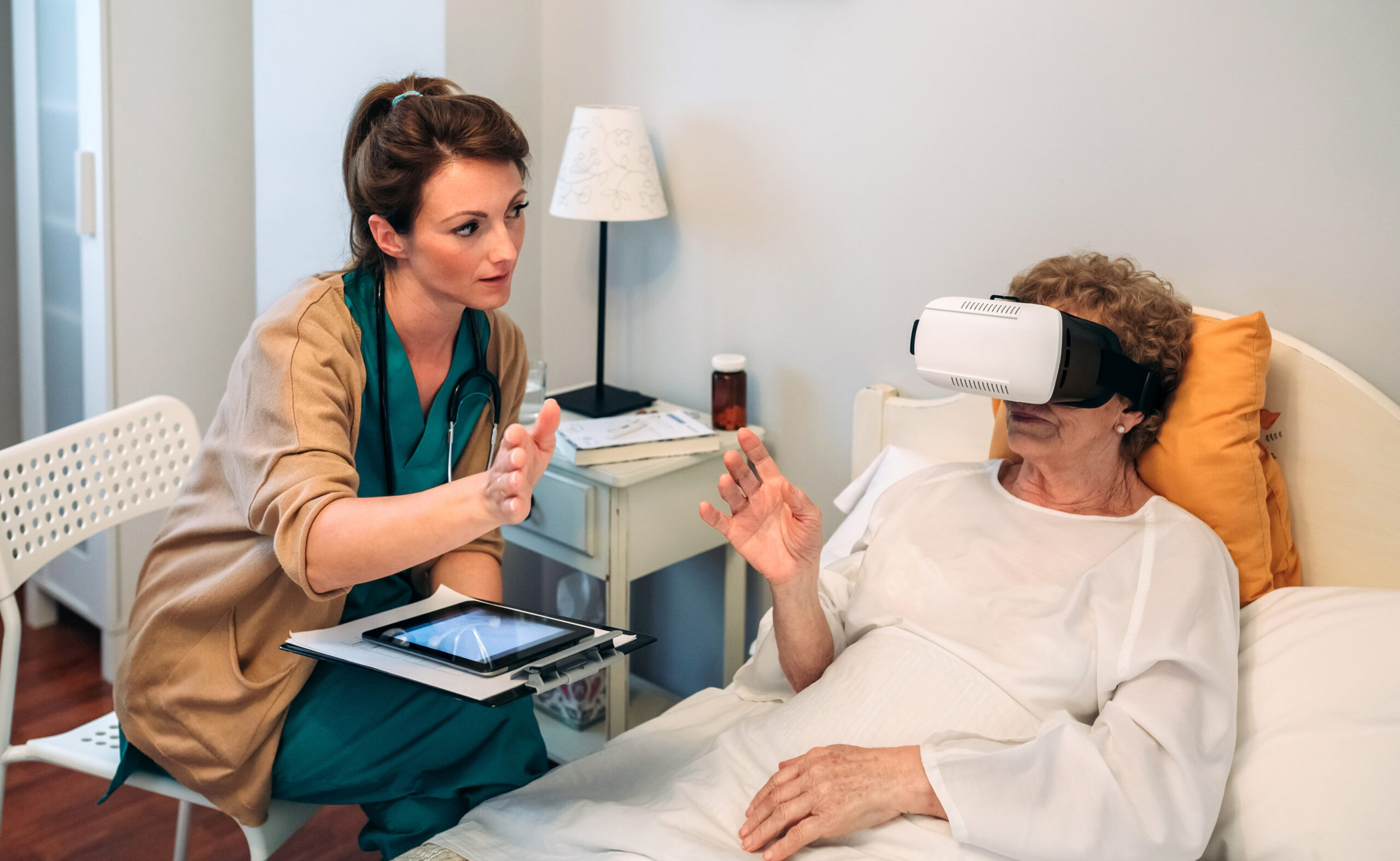Broaching the subject of death is difficult for nearly everyone, doctors and nurses included, but talking openly and with greater sensitivity can help patients face end-of-life with less fear and frustration. And learning empathy, with the help of a new Virtual Reality tool, may better prepare hospice workers and medical students, offering patients an improved end-of-life experience.
In recent years there has been a subtle shift in medical care as patients near the end-of-life, focusing on a better death rather than extending life by all means possible. And as part of this approach, more hospitals and schools are training staff how to prepare patients for death with as much empathy and understanding as possible.
According to a recent WRUR public radio report, with the help of a Virtual Reality video, designed by Embodied Labs, doctors and other health care workers are able to experience end-of-life from the perspective of the patient. Doctors, students and nurses can feel the fear, the frustration and hopefully gain a better understanding of the dying process and renew a capacity for empathy.
Researchers have found that medical students may lose some of their empathy for patients as their clinical training progresses. Being empathetic to patients is an important factor in providing the best care possible, especially nearing the end-of-life.
Through Virtual Reality, health care workers can experience first-hand what it feels like to receive a terminal diagnosis, transition to home hospice and approach the final days of life. Other VR narratives produced by Embodied Labs include A Journey Through Alzheimer’s Disease and the experience of macular degeneration and hearing loss common in old age. Learn more about virtual reality training by following this link to the lab’s website.






Add Your Voice
0 Comments
Join the Discussion